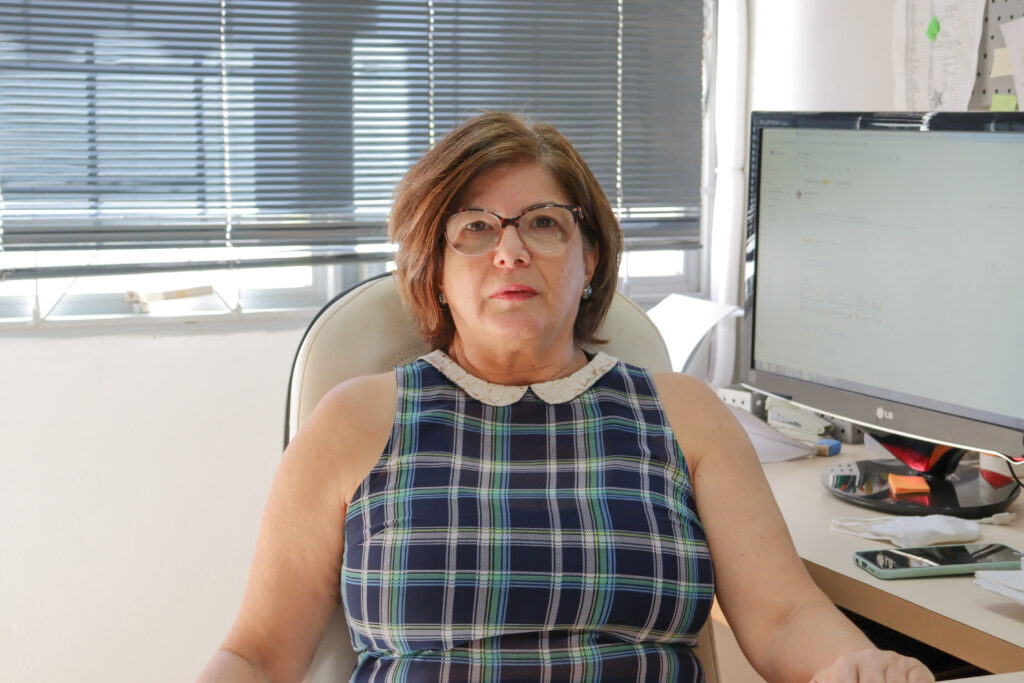


Mascaro specializes in physical chemistry with a focus on electrochemistry (photo: CDMF)
Published on 10/17/2024
Agência FAPESP – Lucia Helena Mascaro, professor at the Federal University of São Carlos (UFSCar) and research director of the Center for the Development of Functional Materials (CDMF), was one of the winners of the seventh edition of the Brazilian Women in Chemistry Award. She won in the “Academic Leadership” category.
The CDMF is a FAPESP Research, Innovation and Dissemination Center (RIDC) based at UFSCar.
The award, sponsored by the American Chemical Society (ACS) and the Brazilian Chemical Society (SBQ), aims to promote gender equality with a focus on the Brazilian chemical community and to recognize the impact of diversity in scientific research in chemistry. It seeks to recognize women scientists with relevant contributions and outstanding research in science, technology, engineering and mathematics (STEM).
The “Academic Leadership” category recognizes female researchers with an established academic background whose contributions to the field of chemistry have had a global and societal impact.
The UFSCar professor specializes in physical chemistry with a focus on electrochemistry. She has held leadership positions in several chemical societies and coordinated energy and sustainability projects funded by various Brazilian government agencies.
Elisama Vieira dos Santos, associate professor at the Department of Chemistry of the Federal University of Rio Grande do Norte (UFRN), was honored in the “Emerging Leader in Chemistry” category. Santos’ research focuses on the development of electrochemical processes for a cleaner environment, using green hydrogen as an energy vector.
The awards are offered by the ACS and SBQ and sponsored by the Chemical Abstracts Service (CAS) and ACS Publications, divisions of the American Chemical Society. Each winner receives a cash prize, a SciFinder ID valid for one year, a one-year membership of the ACS and SBQ, an award certificate in English, a plaque in Portuguese and a course subscription to the ACS Institute.
Source: https://agencia.fapesp.br/53080